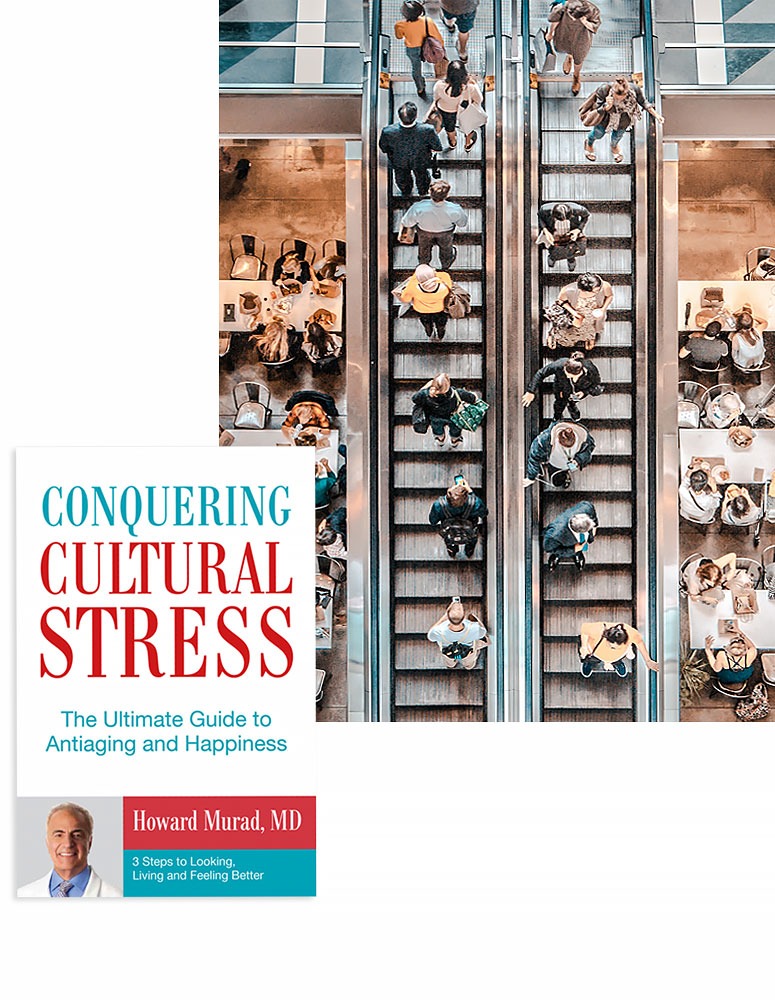Our inboxes are full, our refrigerators empty; the laundry needs doing, bills need paying, and we’re missing deadlines at work. Worst of all, we’re frozen, like deer in the headlights, unable to identify what to do first, or next, or ever. Cultural overload can lead to exhaustion, overwhelm, and ultimately, paralysis. What’s the solution? Here’s my prescription:
- Recognize what’s happening is part of cultural stress.
- Take a deep breath and assure yourself that you’re not a loser, alone, or a failure; we all experience it.
- Reconnect with your inner toddler and take a baby step. Dive in and do one thing that you can do without fear of failure. Then one more. As you cross things off your “To-do” list, your confidence returns and you feel empowered again.
I had a patient I’ll call Shelly, who came to me with a skin rash. Although I was easily able to treat the rash topically, the deeper issue was stress. Both her living and work environments were toxic. Her apartment had an undetectable gas leak, which was making her feel chronically ill and listless. Her employer was an angry man who thought nothing of venting his frustration on his employees. Shelly was seeking alternate employment, as well as a new home, but without secure income it was difficult to know how much rent she could afford. And, with her energy zapped by fumes at home and a fuming boss at work, she had a hard time facing the prospect of a move. Overwhelmed, she was frozen. I gently encouraged her to do just one thing to stop the negative spiral and get events building in a positive direction again.
Shelly later admitted to me that the first step to neutralizing her paralysis was actually as simple as making a list. “Once I had it all down on paper, I felt empowered,” she said. “It was smaller than me, instead of bigger than me.”
She began creating a new life for herself by getting a three-week pet-sitting assignment that got her out of her toxic apartment. Next she got a P.O. Box so that she had a permanent address she could give prospective employers. These two steps alone had her feeling better and in charge of her life, rather than a victim of circumstances.
By the time the pet-sitting gig ended, Shelly had found a house-share situation she was confident she could afford. From this new base of operations—and restored confidence and energy levels—she was much more likely to find a better job. To help her handle the energy load of a move, she threw a packing party and invited her friends to bring boxes, packing materials, and something for the grill. One friend manned the barbecue while the others sorted, wrapped, packed, and loaded the U-Haul. Food, drinks, and laughter flowed. Instead of being an energy drain, the physical support of her social network buoyed her.
When her move was completed and she’d spent a few weeks in her new job—which wasn’t necessarily a career move, but a stepping stone out of her toxic workplace—Shelly hosted another party—a thank-you for the friends who had helped her when she needed it. This was not only a gift to her friends; it was a wise investment in her social network, which is one of the strongest anti-stressors human beings can have.
Want to know more about overcoming cultural overload? Read my book on Conquering Cultural Stress, which includes sets out a three-part plan to manage stress and build youth back into your cells. Included are diet, exercise, and lifestyle changes that will reconnect you with who you were as a toddler—when your cells were fully hydrated, life and learning were joyful, and failure meant nothing to you!
MORE
LESS 